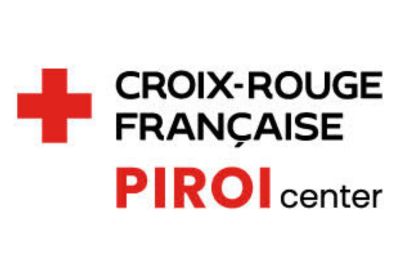Disaster risk reduction
Why is disaster risk reduction (DRR) important?Natural hazards are naturally occurring physical phenomena caused by either the rapid or slow onset of events having atmospheric, geologic and hydrologic origins on solar, global, regional, national or local scales. Disasters often follow natural hazards and they are a result of the combination of hazards, the conditions of vulnerability, and of the insufficient capacity or measures to reduce the potentially negative consequences of the hazard. Disaster risk reduction is the concept and practice of reducing disaster risks through systematic efforts to analyse and reduce the causal factors of disasters (Source: UNESCO).
|
DRR in the Indian Ocean
South-west Indian Ocean small island states are among the most vulnerable in the world, and local communities are already feeling the impact of climate change – rising sea levels, soil erosion, floods, water scarcity, droughts, and increasingly severe disasters – as well as the social and economic consequences they bring.
Over the past decade, more than 10 million people in the south-west Indian Ocean have been affected by natural disasters. These high-intensity hazards jeopardise access to health, education, and food security in most of the region’s countries, which already face development challenges (poorly developed infrastructure and public services, isolated markets, etc.) and which also share strategic issues due to their insularity.
In recent years, risk reduction has gradually become a priority for Indian Ocean National Societies, and PIROI aims to help them undertake projects adapted to the needs of local populations and the risks to which they are vulnerable.
At regional level, PIROI’s DRR programme supports National Societies in using a standardised approach that can be tailored to the specific circumstances of each of the region’s countries. This includes:
- Developing technical and institutional DRR partnerships
- Creating prevention tools inspired by local contexts and traditions
- Community-based prevention and preparedness (multi-risk approach)
DRR projects implemented since 2007
beneficiaries
Our approach
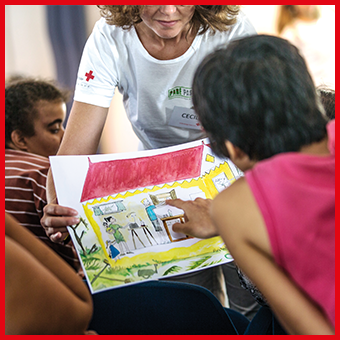
INTEGRATING AWARENESS RAISING ABOUT RISKS AND CLIMATE CHANGE INTO SCHOOL CURRICULA
In all network-member National Societies, PIROI supports and encourages the involvement of institutional and technical partners in each country to better integrate risk reduction projects into school curricula and make them more effective.
SUPPORTING DISADVANTAGED COMMUNITIES BY BUILDING THEIR RESILIENCE
PIROI supports National Societies in conducting Vulnerability and Capacity Assessments (VCA), drawing on the IFRC’s VCA training framework and methodology guide, adapted to the context of the countries in which it operates.
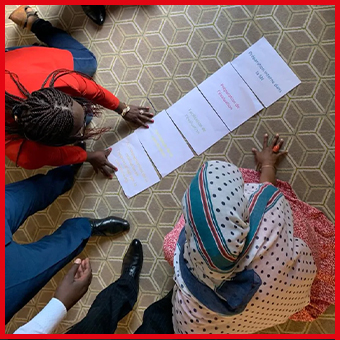
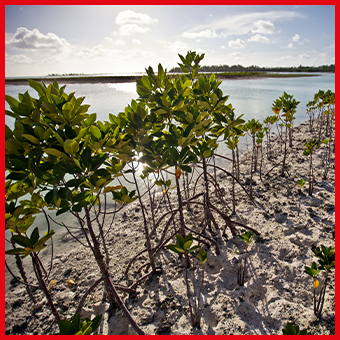
ADOPTING NATURE-BASED SOLUTIONS FOR DRR
The Red Cross helps people manage their natural environment in a sustainable way, thus protecting themselves from disaster risks. Our goal is for Indian Ocean National Societies to implement nature-based solutions within their communities. In Mozambique, this approach has taken the form of a project undertaken in partnership with Biofund and WWF, thanks to backing from the French Development Agency.
ADVOCATING FOR STRONGER NATIONAL DRM LEGAL FRAMEWORKS (IDRL)
Advocacy to integrate management of natural risks, health crises, and the impact of climate change into national and international government policies is an essential part of the PIROI programme, and has already led to the adoption of disaster management rules, laws and principles applicable in Seychelles and Mauritius.
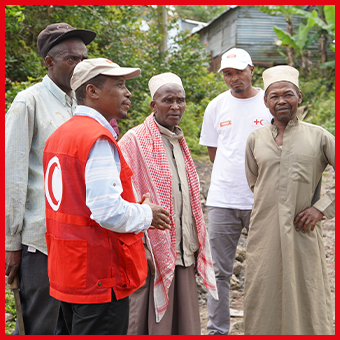
Historique
2009
Implementation of DRR initiatives
The PIROI programme focuses its priorities on raising community awareness of natural risks.
2011
Launch of a pilot project in Reunion Island
PIROI introduces the Paré pas Paré project to raise public awareness of natural risks in Reunion
2014
Implementation in Mauritius and the Comoros
The Zeness pran Kont project in Mauritius and the Shababi ka tayari project in the Comoros adapt the Paré pas Paré project to the specific conditions of the local context to raise public awareness about natural risks
2016
Partnership with the Indian Ocean Commission
PIROI and the IOC, with support from the European Union, develop a guide to help analyse vulnerabilities and capacities in schools: the Eco-Schools Indian Ocean Disaster Risk Reduction Toolkit.
2017
Implementation of a DRR project in Seychelles
PIROI’s DRR methodology is put into practice in Seychelles with the Azir ozordi, prepar pour demen project.
2019
DRR activities are stepped up in Mayotte
PIROI launches the Maore, dzi pangué project in Mayotte, developing educational tools for schools with Mayotte Education Board and conducting prevention initiatives for the general public.
2020
Review of national legal frameworks for risk management
An assessment of the laws and policies underpinning all aspects of disaster risk management is carried out in south-west Indian Ocean countries
2021
Creation of a methodology guide for DRR education
PIROI develops a methodology guide and toolkit to assist RC/RC Movement practitioners in DRR education and awareness raising
2021
Launch of the ECO-DRR project in Mozambique
The French Red Cross partners with WWF and Biofund in an AFD-financed project aimed at making ecosystems, economies, institutions and communities more resilient to climate change
